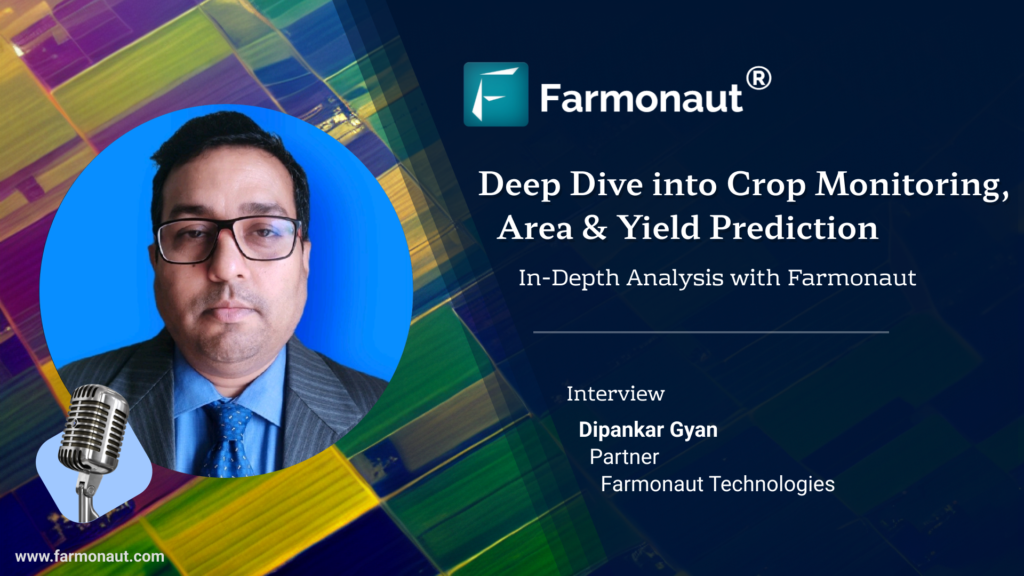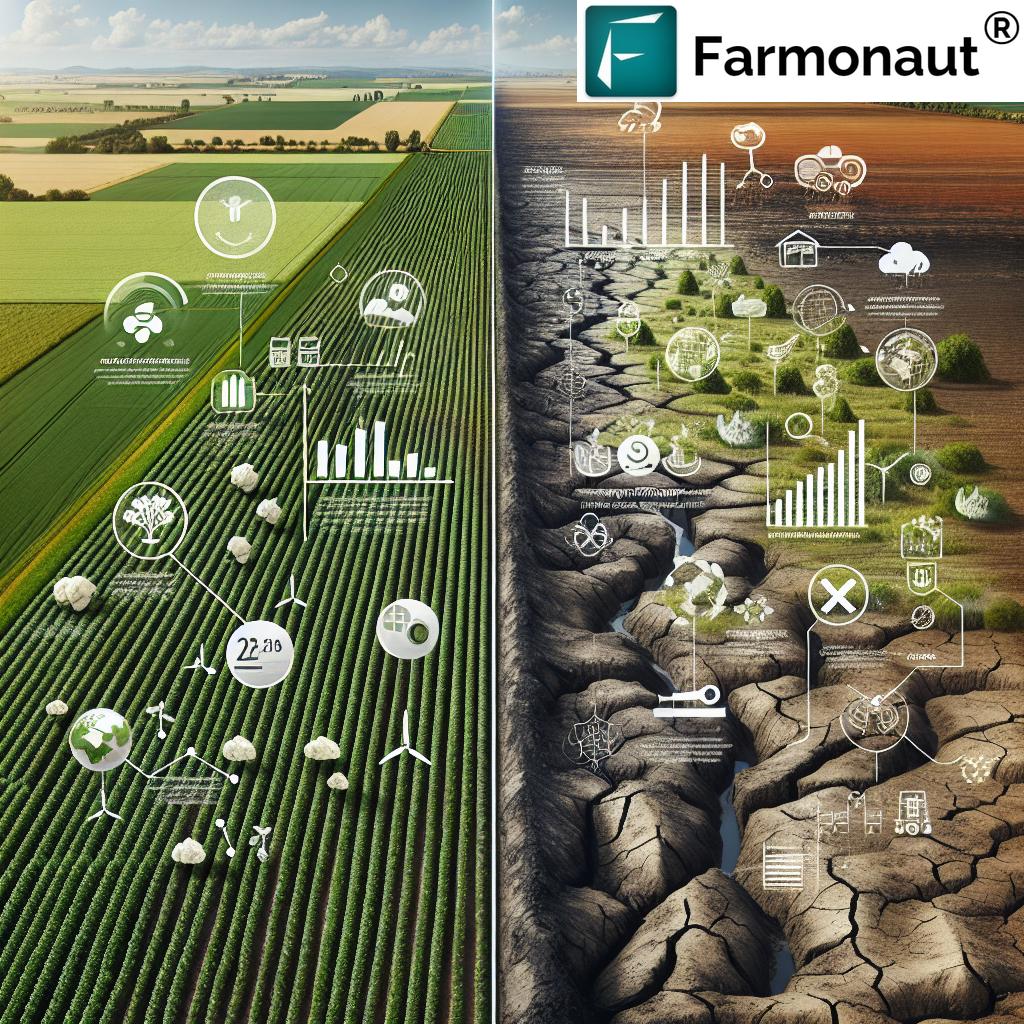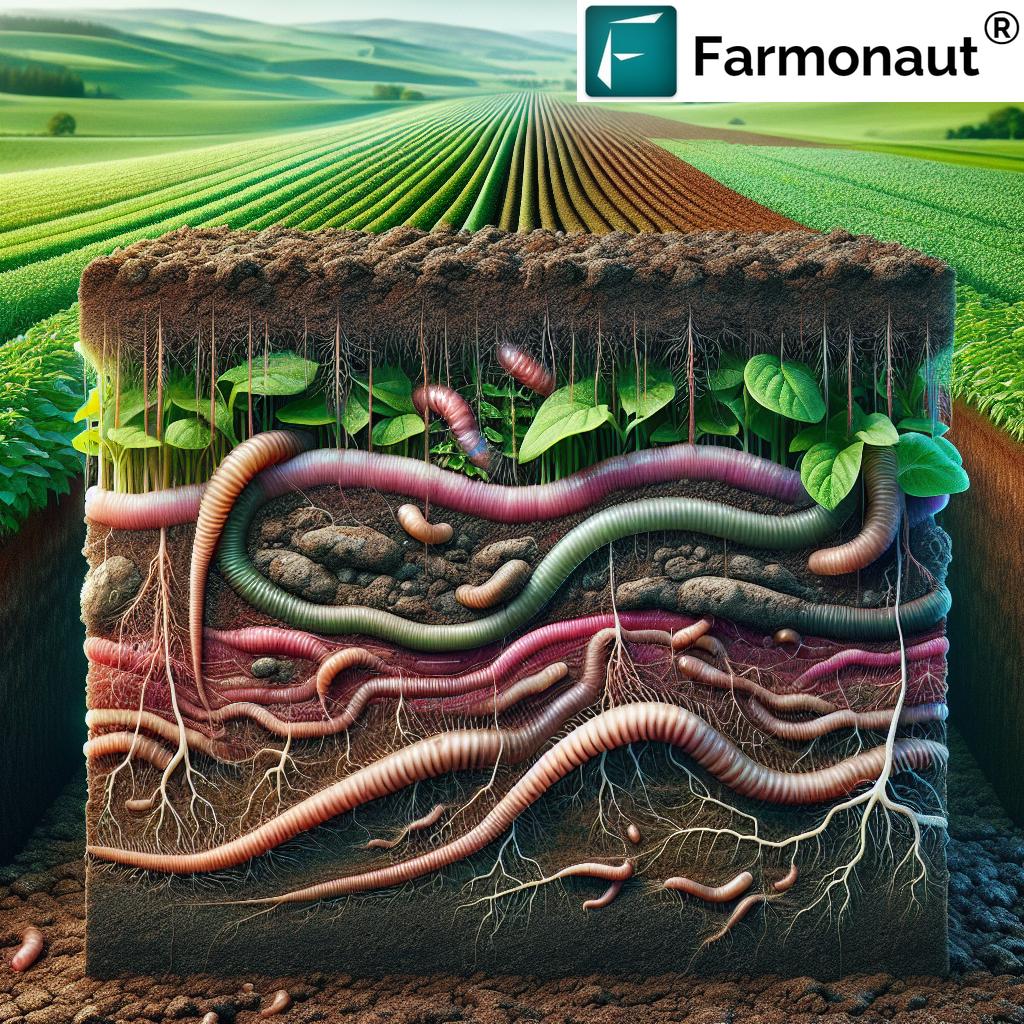Clearwater Organic Pest Control & Detect Pest Control: Organic Fertilizer Solutions Transforming Sustainable Farming in 2025
Table of Contents
- Introduction: The Shift to Sustainable Agricultural Practices in 2025
- The Evolution of Pest Control Methods
- Clearwater Organic Pest Control: Methods, Benefits, and Innovations
- Detect Pest Control: Advanced Pest Monitoring and Early Detection Technologies
- The Critical Role of Organic Fertilizers in Sustainable Farming
- Synergizing Clearwater, Detect Pest Control, and Organic Fertilizers for Sustainable Agriculture
- Comparison Table of Pest Control Methods and Organic Fertilizer Impact
- Future Trends and Ongoing Research in Organic Crop Management
- Farmonaut Solutions: Empowering Modern Agricultural Decisions
- Frequently Asked Questions (FAQ)
- Conclusion: The Road Ahead for Sustainable Farming in 2025 and Beyond
“Clearwater organic pest control methods reduced chemical pesticide use by 60% in sustainable farms by 2025.”
Introduction: The Shift to Sustainable Agricultural Practices in 2025
Sustainable agriculture has rapidly become the cornerstone of modern crop management as the global agricultural sector strives to meet increasing food demand while preserving environmental health. In 2025, innovation is driving significant changes—Clearwater organic pest control, Detect pest control, and an organic fertilizer are at the forefront of a new, integrated model for sustainable farming.
At the heart of this paradigm is a move away from chemical-intensive methods, which have long been associated with environmental degradation, soil health decline, and the development of pest resistance. The rapidly advancing adoption of organic pest control techniques and organic fertilizers is promoting eco-friendly practices that align with modern agricultural principles. Clearwater and Detect pest control represent leading solutions in this space—each making unique contributions towards the establishment of sustainable farming systems that prioritize soil health, crop productivity, water conservation, and biodiversity.
This blog will explore these key innovations for 2025 and beyond, revealing both the evolution of pest control and the integration of organic fertilizer with advanced digital tools to help farmers worldwide transition to a sustainable, resilient, and cost-effective model of crop production.
The Evolution of Pest Control Methods in Agriculture
From Synthetic Chemicals to Bio-Based Solutions
Pest management in agriculture has long relied on synthetic pesticides. While effective in the short term, these products often come with a high price: environmental pollution, harm to beneficial insects and non-target species, buildup of toxic residues in the food chain, and contamination of vital water sources. Over time, the intensive use of chemical agents has contributed to a loss of biodiversity and increasing resistance among pest populations, undermining the effectiveness of conventional control methods.
As environmental awareness has grown and regulatory pressures have tightened, there has been a clear shift towards organic pest control strategies. These involve harnessing biological agents, naturally derived compounds (such as neem oils, plant extracts, and microbial biopesticides), and increasingly sophisticated monitoring and detection technologies (such as those embodied by Clearwater and Detect). These new approaches aim to manage pests without the negative impacts associated with chemical products, supporting both sustainable food production and long-term soil health.
Clearwater Organic Pest Control: Methods, Benefits, and Innovations
A Leading Solution for Organic Pest Control in 2025
Clearwater organic pest control has emerged as a leading solution in organic pest management, particularly in crop farming and horticulture. The core of the Clearwater approach lies in utilizing naturally derived compounds and biological agents to suppress pest populations—offering an effective control method without harming beneficial insects or soil health.
What sets Clearwater apart from many traditional pest control methods is its focus on biodegradable compositions. Unlike synthetic pesticides, Clearwater products rapidly decompose, leaving behind no toxic residues that could potentially contaminate water sources or enter the food chain. This characteristic is especially critical in regions where smallholder farms rely on nearby water bodies for irrigation and drinking purposes.
Innovative Clearwater Formulations in 2025
Clearwater’s 2025 product range leverages advanced biotechnology to refine the efficacy of its organic products:
- Plant-based Oils: Natural oils act as contact agents, disrupting pest life cycles and deterring feeding behaviors.
- Neem Extracts: Renowned for its broad-spectrum effects on pests, neem’s bioactive compounds inhibit growth and reduce reproduction rates.
- Microbial Biopesticides: Beneficial microbes (e.g., Bacillus, Trichoderma) target pests directly or enhance the plant’s own defenses.
These selective agents are designed to:
- Reduce the risk of pests developing resistance (a major problem with conventional pesticides).
- Maintain biodiversity by protecting pollinators and other beneficial insects.
- Integrate with Integrated Pest Management (IPM) plans—combining crop rotation, habitat diversification, and biological control techniques.
Clearwater’s Role in Diverse Agricultural Environments
In 2025, Clearwater organic pest control methods have shown particular value in:
- Agroforestry and Horticulture: Where soil and biodiversity conservation is vital.
- Smallholder Intensive Regions: Where water safety and crop health are non-negotiable.
- Modern Farms: Seeking to reduce chemical dependency while maintaining yield.
By focusing on natural control agents and ensuring they quickly decompose, Clearwater aligns perfectly with contemporary sustainable farming principles in 2025. The widespread adoption of these technologies also reduces the indirect costs associated with toxic runoff and regulatory compliance.
Detect Pest Control: Advanced Monitoring and Early Detection
Why Advanced Pest Detection Is Crucial in Organic Farming
While powerful organic agents help manage pests, their success hinges on timely deployment. This is where Detect pest control—the suite of advanced pest detection and monitoring technologies—becomes indispensable.
Key Technologies Powering Detect Pest Control
The Detect system leverages several advanced technologies for accurate and timely pest identification:
- Sensor Networks: In-field sensors gather real-time data on microclimate and pest activity.
- Pheromone Traps: Targeted species-specific detection of pest presence and population surges.
- Smart Imaging Systems: AI-powered cameras and drones visually detect early signs of pest infestation on leaves and stems.
- Cloud-Based Analytics: Data is interpreted through AI, generating actionable recommendations for farmers.
The broad widespread adoption of Detect pest control has been made possible by increasing access to affordable smartphones and AI-driven advisory platforms. This democratizes digital pest management and makes timely, informed action attainable even for smallholder farmers.
With smarter, earlier detection, farmers can reduce unnecessary applications of organic agents, driving cost savings and further lowering the risk of disrupting beneficial species or causing unwarranted ecological stress.
Farmonaut offers real-time satellite-based crop and field monitoring via app and API, giving farmers the edge in precision agriculture and supporting swift, data-informed pest control decisions (learn more about our large scale farm management solution).
“In 2025, over 40% of crop management practices incorporated organic fertilizers for improved soil health and sustainability.”
The Critical Role of Organic Fertilizers in Sustainable Farming
An Organic Fertilizer: Replenishing Soil & Increasing Resilience in 2025
Modern sustainable farming is incomplete without the intelligent use of organic fertilizer. Replacing synthetic fertilizers—which often degrade soil structure and can introduce pollutants through runoff—is a key step in maintaining long-term soil fertility and crop health.
Organic fertilizers are derived from decomposed plant residues, animal manure, biochar, and sometimes mineral supplements. Their benefits go beyond nutrient supply:
- Enhancing the soil microbiome by supporting beneficial microbial communities.
- Improving water retention and aeration in the soil matrix—key for resilience in climate-stressed conditions.
- Boosting nutrient cycling, allowing for more stable and balanced plant growth.
By restoring organic matter to the soil, these fertilizers encourage healthy root systems, productive crop cycles, and increased resistance to disease and environmental stress.
Combination Strategies: Clearwater & Detect Solutions with Organic Fertilizers
Farms integrating Clearwater organic pest control, Detect pest control, and an organic fertilizer realize synergistic gains in yield, ecosystem stability, and cost savings. This integrated approach allows farmers to:
- Drastically reduce dependency on chemicals and synthetic inputs.
- Sustain productivity even under climate stress.
- Protect water sources and preserve local biodiversity.
- Build a resilient, future-ready model for profitable, eco-conscious crop production.
Synergizing Clearwater, Detect Pest Control, and Organic Fertilizers for Future-Ready Farms
The combination of these advanced solutions is the very definition of modern sustainable agriculture in 2025. Farmers are advised to combine:
- Organic pest control agents (like Clearwater)—for direct, safe suppression of pest populations.
- Advanced pest detection (Detect)—for precision timing and targeted action, keeping intervention minimal but effective.
- Organic fertilizers—to fortify soil health, plant vigor, and overall resilience of the agricultural ecosystem.
With this integrated model, both large-scale enterprises and smallholder farmers can achieve holistic crop management—balancing higher yields with long-term environmental stewardship.
Curious how satellite monitoring can optimize this synergy? Check out our fleet management and carbon footprinting solutions. Farmonaut empowers resource planning and climate-positive practices for farms of all sizes.
Comparison Table of Pest Control Methods and Organic Fertilizer Impact
| Control Method / Fertilizer | Materials Used | Eco-Friendliness (1–5) |
Effectiveness Rate (%) |
Impact on Crop Yield (% Change) |
Soil Health Benefit (1–5) |
|---|---|---|---|---|---|
| Clearwater Organic Pest Control | Plant oils (e.g., neem), plant extracts, microbial biopesticides | 5 | 85–90% | +10–15% | 5 |
| Detect Pest Control (Monitoring) | Sensor networks, pheromone traps, AI imaging | 5 | 80–95% (as advisory) | +8–12% | 5 |
| Select Organic Fertilizers | Compost, animal manure, biochar, plant residue | 5 | 75–90% | +15–25% | 5 |
| Conventional Chemical Pesticides | Synthetic chemicals | 1–2 | 90–95% | +5–10% (short-term) | 1–2 |
| Synthetic Fertilizers | Urea, ammonium phosphate, potassium nitrate | 2 | 90–95% | +8–15% (short-term) | 1 |
These estimations reflect industry data and projections for 2025. The clear benefits of Clearwater organic pest control, Detect pest control, and an organic fertilizer are visible across all key criteria for sustainable agriculture.
Future Trends and Ongoing Research: Toward Greater Climate Resilience in Agriculture
In 2025 and beyond, the push for agricultural innovation is accelerating. Ongoing research focuses on:
- Enhancing the resilience of microbial biopesticides for use in harsher climates and extreme weather scenarios.
- Increasing the spectrum and efficacy of organic fertilizers with micronutrients sourced from sustainable mineral deposits.
- Advanced crop protection technologies powered by AI and remote sensing.
- Tailored action plans for local pest species and soil conditions, enabled by digital advisory systems.
The strategy for the future is clear: combine diverse, eco-friendly control methods and real-time digital decision-making—strengthening the entire agricultural value chain, from soil to supermarket shelf.
Farmonaut Solutions: Empowering Modern Agricultural Decisions
Our Farmonaut platform integrates satellite imagery, AI-driven analytics, and blockchain traceability, making us a gamechanger for sustainable farming in 2025. Through our Android, iOS, and web applications—as well as our robust API and developer documentation—we deliver actionable, real-time insights.
- Satellite-Based Monitoring: Our platform delivers field health reports (NDVI, soil moisture) to help farmers time organic fertilizer applications, irrigation, and pest management precisely. This data-driven approach ensures the best outcomes for soil and crop health (learn about crop loan and insurance verification with Farmonaut).
- AI-Based Advisory: Our Jeevn AI analyzes current and historical crop data for tailored strategies, boosting efficiency and climate resilience.
- Blockchain Traceability: Transparency and trust in food supply chains has never been greater. Our traceability solutions empower producers and buyers to verify agricultural practices and ingredient origins, which is increasingly essential in a sustainability-conscious market.
- Environmental Impact Monitoring: Our carbon footprinting solution (see more) helps farms comply with sustainability regulations and reduces the environmental costs of food production.
Frequently Asked Questions (FAQ)
What is Clearwater organic pest control?
It refers to a leading set of pest control methods based on organic, naturally derived agents. Clearwater relies on plant-based oils, neem extracts, and advanced microbial biopesticides—delivering pest control with no synthetic chemical residues and minimal risk to soil health and beneficial species.
How does Detect pest control work in agriculture?
Detect pest control combines sensor technologies, pheromone traps, and AI-powered imaging to monitor pests’ presence and activity. This early detection enables timely deployment of organic control measures, which increases effectiveness while reducing unnecessary interventions and associated costs.
Why are organic fertilizers so important for sustainable farming in 2025?
Organic fertilizers restore soil fertility, improve water retention, foster beneficial microbial communities, and boost natural nutrient cycling. They help build resilient farming systems and are increasingly favored over synthetic fertilizers, which can degrade soil and pollute water sources.
Is there a risk of pests developing resistance to Clearwater organic pest control?
Compared to traditional chemical pesticides, the risk of pest resistance is much lower with Clearwater organic agents. This is because they interact with pests in complex, multifaceted ways, and the formulations are selectively targeted—making resistance harder to develop over time.
How do Clearwater and Detect pest control integrate with digital platforms?
Advanced digital tools like satellite imagery, AI-based analytics, and farm management apps (including ours at Farmonaut) allow for real-time monitoring, precision pest management, and data-driven decision making. This ensures that organic agents and inputs are applied only where and when truly needed, maximizing efficiency and sustainability.
How do I get started with sustainable farming technologies?
Utilize digital advisory tools, like those from Farmonaut, to monitor your soil, crops, and pest activity. Integrate Clearwater organic pest control products and organic fertilizers, and leverage Detect system technologies for early intervention. For more on how satellite data can transform your farm, explore our large scale farm management and forest crop advisory options.
Conclusion: The Road Ahead for Sustainable Farming in 2025 and Beyond
The integration of Clearwater organic pest control, Detect pest control, and an organic fertilizer is transforming the face of sustainable agriculture in 2025. These technologies and eco-friendly practices are proving key to reducing chemical dependency, cutting production costs, and safeguarding critical environmental resources—while also enhancing soil health and ensuring robust crop yields.
This shift is not just a fleeting trend but a reflection of the agricultural sector’s ongoing commitment to prioritize practices that align with global food security and climate resilience. By embracing these advancements, farmers and land managers position themselves at the forefront of a modern agricultural system that values both productivity and sustainability.
As we continue to develop and deploy cutting-edge digital tools, like those provided by Farmonaut, the combination of organic innovation and precision analytics will continue to drive agricultural excellence. Explore satellite-based insights, AI-driven recommendations, and traceable sustainability practices for a future-ready farm.
Start your sustainable farming journey today with Farmonaut’s advanced solutions and join a rapidly growing movement that is reshaping agriculture for the better. Experience firsthand how clearwater organic pest control, detect pest control, and an organic fertilizer can deliver robust, environmentally responsible yields for years to come.










